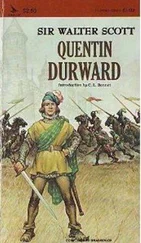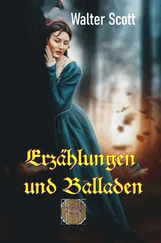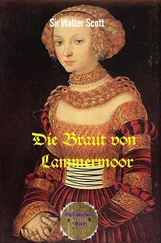Walter Scott - Letters on Demonology and Witchcraft
Здесь есть возможность читать онлайн «Walter Scott - Letters on Demonology and Witchcraft» весь текст электронной книги совершенно бесплатно (целиком полную версию без сокращений). В некоторых случаях можно слушать аудио, скачать через торрент в формате fb2 и присутствует краткое содержание. Жанр: История, на английском языке. Описание произведения, (предисловие) а так же отзывы посетителей доступны на портале библиотеки ЛибКат.
- Название:Letters on Demonology and Witchcraft
- Автор:
- Жанр:
- Год:неизвестен
- ISBN:нет данных
- Рейтинг книги:4 / 5. Голосов: 1
-
Избранное:Добавить в избранное
- Отзывы:
-
Ваша оценка:
- 80
- 1
- 2
- 3
- 4
- 5
Letters on Demonology and Witchcraft: краткое содержание, описание и аннотация
Предлагаем к чтению аннотацию, описание, краткое содержание или предисловие (зависит от того, что написал сам автор книги «Letters on Demonology and Witchcraft»). Если вы не нашли необходимую информацию о книге — напишите в комментариях, мы постараемся отыскать её.
Letters on Demonology and Witchcraft — читать онлайн бесплатно полную книгу (весь текст) целиком
Ниже представлен текст книги, разбитый по страницам. Система сохранения места последней прочитанной страницы, позволяет с удобством читать онлайн бесплатно книгу «Letters on Demonology and Witchcraft», без необходимости каждый раз заново искать на чём Вы остановились. Поставьте закладку, и сможете в любой момент перейти на страницу, на которой закончили чтение.
Интервал:
Закладка:
The celebrated case of "the Lancashire witches" (whose name was and will be long remembered, partly from Shadwell's play, but more from the ingenious and well-merited compliment to the beauty of the females of that province which it was held to contain), followed soon after. Whether the first notice of this sorcery sprung from the idle head of a mischievous boy, is uncertain; but there is no doubt that it was speedily caught up and fostered for the purpose of gain. The original story ran thus:—
These Lancaster trials were at two periods, the one in 1613, before Sir James Altham and Sir Edward Bromley, Barons of Exchequer, when nineteen witches were tried at once at Lancaster, and another of the name of Preston at York. The report against these people is drawn up by Thomas Potts. An obliging correspondent sent me a sight of a copy of this curious and rare book. The chief personage in the drama is Elizabeth Southam, a witch redoubted under the name of Dembdike, an account of whom may be seen in Mr. Roby's "Antiquities of Lancaster," as well as a description of Maulkins' Tower, the witches' place of meeting. It appears that this remote county was full of Popish recusants, travelling priests, and so forth; and some of their spells are given in which the holy names and things alluded to form a strange contrast with the purpose to which they were applied, as to secure a good brewing of ale or the like. The public imputed to the accused parties a long train of murders, conspiracies, charms, mischances, hellish and damnable practices, "apparent," says the editor, "on their own examinations and confessions," and, to speak the truth, visible nowhere else. Mother Dembdike had the good luck to die before conviction. Among other tales, we have one of two female devils, called Fancy and Tib. It is remarkable that some of the unfortunate women endeavoured to transfer the guilt from themselves to others with whom they had old quarrels, which confessions were held good evidence against those who made them, and against the alleged accomplice also. Several of the unhappy women were found not guilty, to the great displeasure of the ignorant people of the county. Such was the first edition of the Lancashire witches. In that which follows the accusation can be more clearly traced to the most villanous conspiracy.
About 1634 a boy called Edmund Robinson, whose father, a very poor man, dwelt in Pendle Forest, the scene of the alleged witching, declared that while gathering bullees (wild plums, perhaps) in one of the glades of the forest, he saw two greyhounds, which he imagined to belong to gentlemen in that neighbourhood. The boy reported that, seeing nobody following them, he proposed to have a course; but though a hare was started, the dogs refused to run. On this, young Robinson was about to punish them with a switch, when one Dame Dickenson, a neighbour's wife, started up instead of the one greyhound; a little boy instead of the other. The witness averred that Mother Dickenson offered him money to conceal what he had seen, which he refused, saying "Nay, thou art a witch." Apparently she was determined he should have full evidence of the truth of what he said, for, like the Magician Queen in the Arabian Tales, she pulled out of her pocket a bridle and shook it over the head of the boy who had so lately represented the other greyhound. He was directly changed into a horse; Mother Dickenson mounted, and took Robinson before her. They then rode to a large house or barn called Hourstoun, into which Edmund Robinson entered with others. He there saw six or seven persons pulling at halters, from which, as they pulled them, meat ready dressed came flying in quantities, together with lumps of butter, porringers of milk, and whatever else might, in the boy's fancy, complete a rustic feast. He declared that while engaged in the charm they made such ugly faces and looked so fiendish that he was frightened. There was more to the same purpose—as the boy's having seen one of these hags sitting half-way up his father's chimney, and some such goodly matter. But it ended in near a score of persons being committed to prison; and the consequence was that young Robinson was carried from church to church in the neighbourhood, that he might recognise the faces of any persons he had seen at the rendezvous of witches. Old Robinson, who had been an evidence against the former witches in 1613, went along with his son, and knew, doubtless, how to make his journey profitable; and his son probably took care to recognise none who might make a handsome consideration. "This boy," says Webster, "was brought into the church at Kildwick, a parish church, where I, being then curate there, was preaching at the time, to look about him, which made some little disturbance for the time." After prayers Mr. Webster sought and found the boy, and two very unlikely persons, who, says he, "did conduct him and manage the business: I did desire some discourse with the boy in private, but that they utterly denied. In the presence of a great many many people I took the boy near me and said, 'Good boy, tell me truly and in earnest, didst thou hear and see such strange things of the motions of the witches as many do report that thou didst relate, or did not some person teach thee to say such things of thyself?' But the two men did pluck the boy from me, and said he had been examined by two able justices of peace, and they never asked him such a question. To whom I replied, 'The persons accused had the more wrong.'" The boy afterwards acknowledged, in his more advanced years, that he was instructed and suborned to swear these things against the accused persons by his father and others, and was heard often to confess that on the day which he pretended to see the said witches at the house or barn, he was gathering plums in a neighbour's orchard. [56] [56] Webster on Witchcraft, edition 1677, p. 278.
There was now approaching a time when the law against witchcraft, sufficiently bloody in itself, was to be pushed to more violent extremities than the quiet scepticism of the Church of England clergy gave way to. The great Civil War had been preceded and anticipated by the fierce disputes of the ecclesiastical parties. The rash and ill-judged attempt to enforce upon the Scottish a compliance with the government and ceremonies of the High Church divines, and the severe prosecutions in the Star Chamber and Prerogative Courts, had given the Presbyterian system for a season a great degree of popularity in England; and as the King's party declined during the Civil War, and the state of church-government was altered, the influence of the Calvinistic divines increased. With much strict morality and pure practice of religion, it is to be regretted these were still marked by unhesitating belief in the existence of sorcery, and a keen desire to extend and enforce the legal penalties against it. Wier has considered the clergy of every sect as being too eager in this species of persecution: Ad gravem hanc impietatem, connivent theologi plerique omnes . But it is not to be denied that the Presbyterian ecclesiastics who, in Scotland, were often appointed by the Privy Council Commissioners for the trial of witchcraft, evinced a very extraordinary degree of credulity in such cases, and that the temporary superiority of the same sect in England was marked by enormous cruelties of this kind. To this general error we must impute the misfortune that good men, such as Calamy and Baxter, should have countenanced or defended such proceedings as those of the impudent and cruel wretch called Matthew Hopkins, who, in those unsettled times, when men did what seemed good in their own eyes, assumed the title of Witchfinder General, and, travelling through the counties of Essex, Sussex, Norfolk, and Huntingdon, pretended to discover witches, superintending their examination by the most unheard-of tortures, and compelling forlorn and miserable wretches to admit and confess matters equally absurd and impossible; the issue of which was the forfeiture of their lives. Before examining these cases more minutely, I will quote Baxter's own words; for no one can have less desire to wrong a devout and conscientious man, such as that divine most unquestionably was, though borne aside on this occasion by prejudice and credulity.
Читать дальшеИнтервал:
Закладка:
Похожие книги на «Letters on Demonology and Witchcraft»
Представляем Вашему вниманию похожие книги на «Letters on Demonology and Witchcraft» списком для выбора. Мы отобрали схожую по названию и смыслу литературу в надежде предоставить читателям больше вариантов отыскать новые, интересные, ещё непрочитанные произведения.
Обсуждение, отзывы о книге «Letters on Demonology and Witchcraft» и просто собственные мнения читателей. Оставьте ваши комментарии, напишите, что Вы думаете о произведении, его смысле или главных героях. Укажите что конкретно понравилось, а что нет, и почему Вы так считаете.









